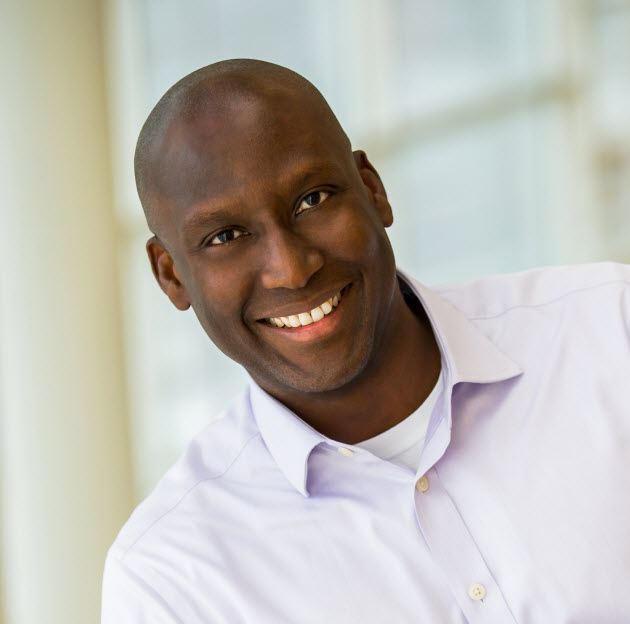What is quantum computing? Should lawyers care about quantum computers, let alone take time to ponder related, mind-bending theories like superposition, coherence and entanglement? How will quantum computing impact the legal profession, inform public policy and change our world?
These are some questions I’ll be investigating this week at the Private Roof Club in Berlin, Germany. I’ll be attending the sold out International Bar Association’s 6th Biennial Technology Law Conference alongside fellow Evolve the Law Contributor, and ZentLaw Founder, Monica Zent. We’re joining an international panel with subject matter experts in the field of quantum physics to separate fact from science-fiction.
My goal? Break down the quantum computing wall.
Here’s why.
30 Years After Berlin: New Quantum Walls?
This November is a timely month to gather in Berlin to reflect upon the promise of new technology. Thirty years ago the world witnessed the fall of the Berlin Wall. 1989 was the dusk of the U.S.-Soviet Cold War and the dawn of a new Europe recommitted to open government, greater freedom and democracy.
Jump to 2019.
While a wall no longer divides East Berlin from the continent, we’re again seeing the Cold War specter – a renewed competition for powerful technologies like artificial intelligence and quantum computing that will without question have a significant effect on legal systems all over the globe.
Lawyers, governments and private sector actors are all bracing for the quantum impact. Recently, the U.S. signed off on the National Quantum Initiative, a Federal program allocating $1.2 billion to advance research and development of quantum technologies. China has similarly invested heavily in the race for “quantum supremacy,” a feat a team at Google in Santa Barbara recently claimed to achieve, prompting a celebratory tweet from Ivanka Trump. IBM, who announced the Q System One quantum processor in upstate New York earlier this year, criticized Google’s claim. Not to be outdone, Amazon and Microsoft have their own quantum computing initiatives to boast.
This begs the question heading into Berlin this week. Thirty years after the fall of the Berlin Wall, is quantum computing leading us right back to where we started?
Why Quantum Computers Will Change The Way We Think
We examined the promise and peril of quantum computers in this previous post. Now, legal professionials must begin prepping for their arrival. We can start by understanding that quantum computers will change legal practice by literally changing the way we think.
In our present “regular computer” era, lawyers are called upon to interpret a series of text-based documents (i.e. laws) within the context of a set of events that have already occurred in the past. We call them “facts” – and it’s generally a lawyer’s job to analyze them against the laws to determine legal outcomes. To boil it down, because of facts X and Y, and laws A and B, we reach C conclusion. The point of C conclusion is usually to assign blame or “liability” to a person or corporation.
This simplistic model of how lawyers process legal inputs (facts and laws) to reach legal outputs (conclusions) is similar to the way traditional computers work, by processing lines of code. Something is either a 1 or a 0 (a fact or a law) and that something is then transposed into something else by those magical boxes we call computers.
Quantum computing blows this all up by introducing new computers capable of processing information that does not exist in either a 1 or a 0 form. These new “quibits,” as they are called by experts, exist in multiple states simultaneously (1 and 0). Wielding quibits exponentially increases the predictive power of quantum computers to solve for complexity by accounting for increased variability across time and space. Thank you laws of quantum physics!
And congratulations reader. You’re now a 1L student in quantum law school.
From Facts to QFacts – Solving Legal Problems Using Quantum Theory
In the coming quantum law era, lawyers using quantum computers will be able to see just as far forward into the future as they can look back into the past. Facts will lose relevance to what we might call “QFacts” – endless possibilities of facts existing in multiple states and times all at once.
Processing QFacts will enable future lawyers to perform a level of predictive analysis beyond our wildest imaginations today. This might include, for example, knowing the outcome of a complex jury trial before a set of parties is even aware of any dispute. Contract breaches might also be identified and averted before the contract itself exists (making them not contracts at all), giving rise to the idea of pre-contract breaches. Combine quantum computers with transaction recording blockchain platforms and we could be looking at a future where all contractual legal work is solvable by machines without any real human effort – a scary or hopeful reality depending upon how you feel about contractual legal work.
On a slightly more dystopian note, quantum computers are likely to make “pre-crime” a real thing. This is the idea, originally coined by science fiction writer Philip K. Dick and dramatized in the 2002 film Minority Report, that future courts will one day possess the power to prosecute crimes not yet committed. In the film (one of my personal favorites), the protagonist, played by Tom Cruise, is found guilty of a murder that has not yet taken place based upon evidence obtained by psychic individuals called “pre-cognitives” or “precogs” able to see future events.
Quantum computers, with all their predictive power, could at least in theory be used (or abused) just like precogs – part of a state’s effort to eliminate criminality entirely.
How Quantum Computers Will Change The Way We Work
In addition to changing the way lawyers think, quantum computing will change how lawyers work to solve legal problems. This is by providing lawyers with new regulatory challenges to surmount (a big upside for the profession!) and accelerating the rate of adoption of quantum computer’s technological partner in pre-crime: artificial intelligence.
Quantum computers, like any new technology, cannot be properly analyzed in a vacuum. These new machines must be seen in the context of other developing technologies, mainly artificial intelligence and machine learning. Consider this: using Google’s Sycamore quantum processor it’s now purported to be possible to solve problems that take normal computers 10,000 years to solve in just seconds. With this exponential increase in processing power, we’ll see a similarly dramatic acceleration in the adoption of AI legal systems already impacting the industry.
On the upside, and there must always be an upside, quantum computing may change the way we work for the better by giving lawyers new regulatory challenges to tackle. As less complex legal work is farmed out to quantum powered AI bots, forward thinking and inspired lawyers can cheat upstream, breaking ground in new practice areas like “Quantum Law” or “Artificial Intelligence Law.”
Perhaps, if life imitates art, future law students will one day sit through “PreCrime Law” lectures at the Philip K. Dick School of Law.
Forging New Quantum Regulations: Anti-Trust, Openness & Data Security
On the regulatory front, quantum computing is likely to exacerbate the current “anti-trust” debate around the breakup of the Big Tech companies.
What, for example, might be the societal drawbacks of having large social media companies like Facebook, or DNA banks like 23andMe, commercialize quantum computing in addition to other verticals? We’ve already experienced, thanks to Cambridge Analytica, what happens when political advertising is left completely unchecked in hands of Big Tech. Should limits now be placed on what problems quantum computers are allowed to solve? Anti-Trust lawyers may one day decide.
We’ll also likely want smart legislation around the appropriate level of “openness” to core quantum technology.
International norms around who may in fact access quantum’s underlying technology will need to be developed and enforced, similar to those limiting access to nuclear weapons. One idea being discussed is restricting physical access to core quantum technology to a limited set of vetted actors, with customer access limited to a “quantum cloud” so as not to stifle innovation. Again, lawyers should be in the room to find an appropriate level of openness.
Lastly, but perhaps most immediately, data security and privacy specialists must address the fact that quantum computers will render modern encryption methods obsolete. Current encryption practices date back many decades and will be easily cracked, leading to vulnerabilities in critical banking, healthcare and national security systems. Data security practitioners, especially those in governmental sectors, will be expected to gain fluency in future “quantum encryption” policies and protocols to meet these new threats.
A Quantum Leap for Lawyers?
In a previous podcast episode with Professor Jeff Ward of the Duke Center on Law & Tech, we put forth a bold idea: that technological disruption has thrust us into a new “golden age” of lawyering – a unique time in human history calling upon the legal profession to renew a sense of purpose, think differently about its place in the world, and get busy constructing the new frameworks we’ll need to reap the rewards of innovation.
I’m carrying this bold idea to Germany this week. On this 30 year anniversary of the fall of the Berlin Wall, it’s to make sure we do not unintentionally build up any new walls along the way.
Lets instead leap over them – and make it a quantum leap!
 Ian Connett, Esq. (@QuantumJurist) is the Founder of Connett, P.C. and QuantumJurist, Inc., a LegalTech consulting and technology venture dedicated to improving and creating efficiencies in the legal services industry. Ian is also a Contributing Editor to the EvolveTheLaw.com Legal Innovation Center and Host of the Evolve the Law Podcast. Ian resides in New York, where he has served as an in-house counsel to numerous technology companies. You can connect with Ian on Twitter and LinkedIn and you can reach him by email at ian@quantumjurist.com (for story ideas, personal correspondence, media inquires or speaking engagements).
Ian Connett, Esq. (@QuantumJurist) is the Founder of Connett, P.C. and QuantumJurist, Inc., a LegalTech consulting and technology venture dedicated to improving and creating efficiencies in the legal services industry. Ian is also a Contributing Editor to the EvolveTheLaw.com Legal Innovation Center and Host of the Evolve the Law Podcast. Ian resides in New York, where he has served as an in-house counsel to numerous technology companies. You can connect with Ian on Twitter and LinkedIn and you can reach him by email at ian@quantumjurist.com (for story ideas, personal correspondence, media inquires or speaking engagements).









